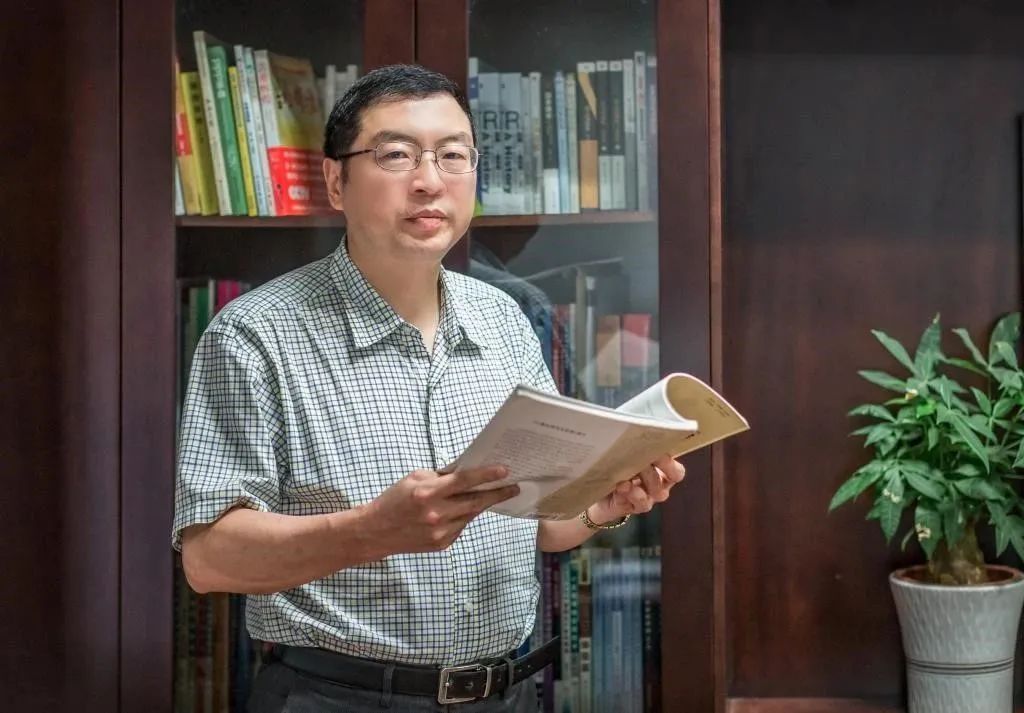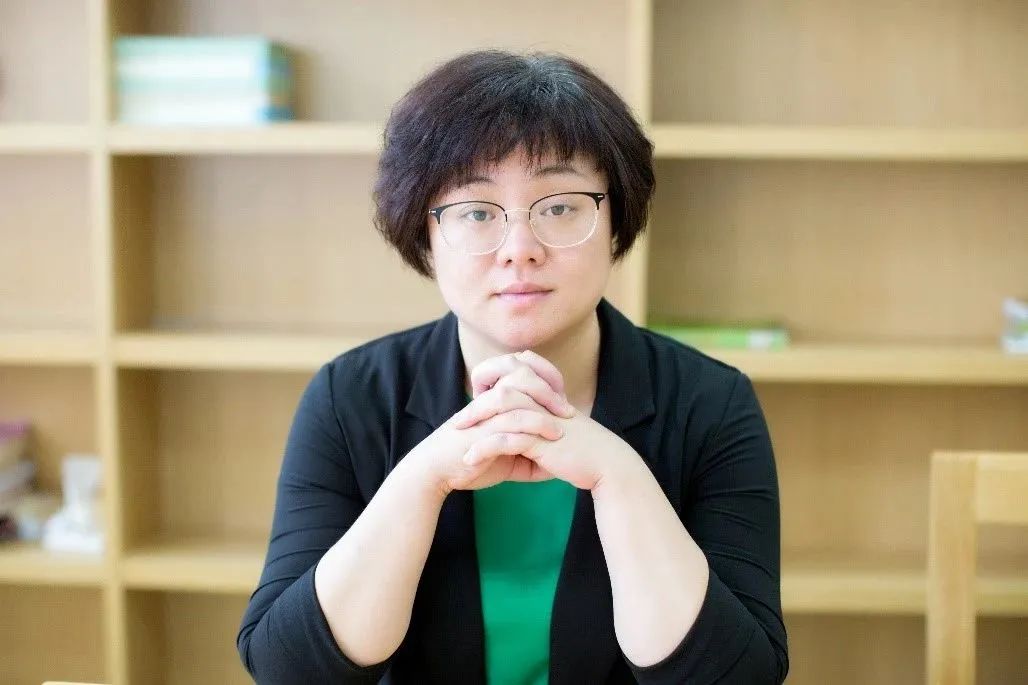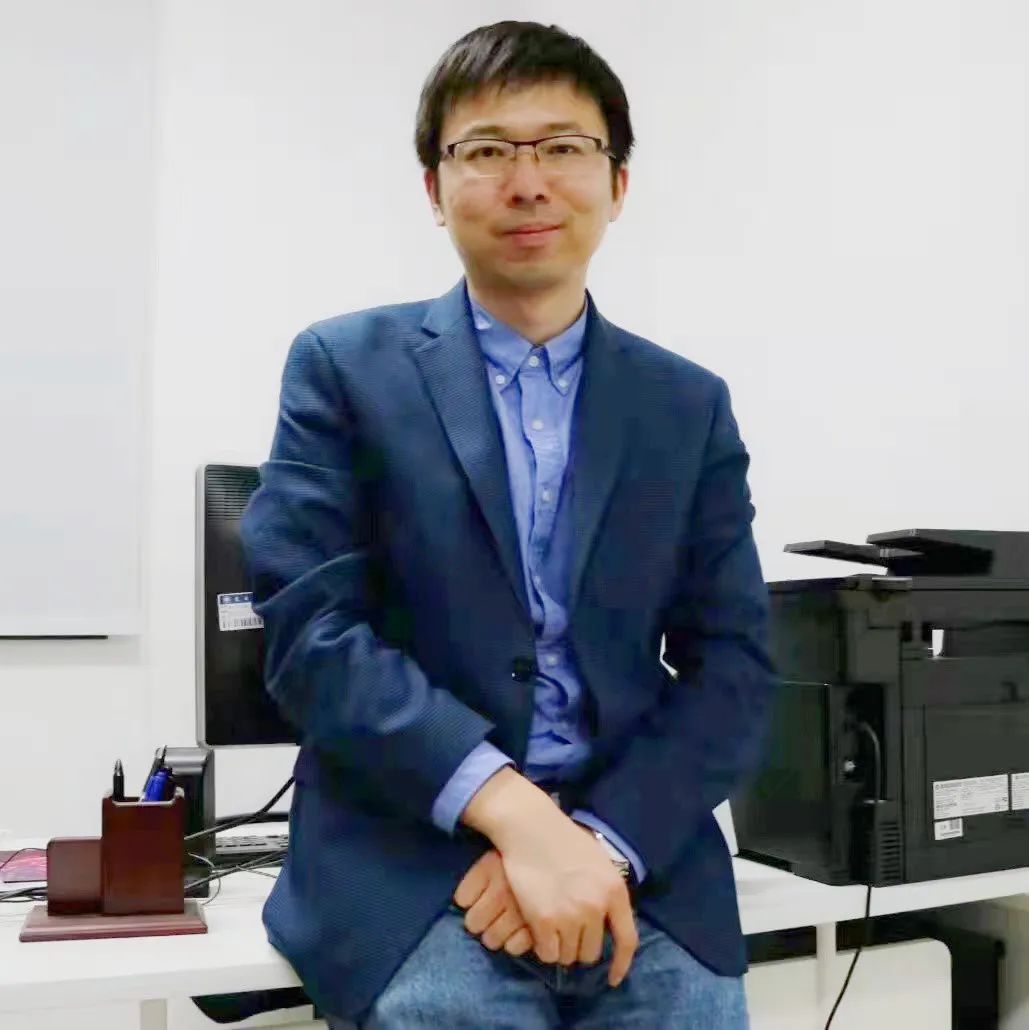The results of a number of high-level scientific research projects have been announced in recent days, and Taizhou University has made new breakthroughs in the key research and development programs of the Ministry of Science and Technology of the People’s Republic of China, the “Trailblazer” research and development programs of Zhejiang Province, the key projects of the Natural Science Foundation of Zhejiang Province, and the Outstanding Young People’s Science Foundation of Zhejiang Province.
“Intergovernmental International Cooperation in Sci-Tech Innovation” Key Special Projects under the National Key R&D Program
The Ministry of Science and Technology of the People’s Republic of China announced the results of the projects under the National Key R&D Program. The project “Plant-Pathogen Feedback Driving Mechanisms of Plant Diversity-Invasive Relationships Along the Precipitation Gradient” by Prof. Yu Feihai’s team has been awarded with the funding, which is a new breakthrough in the national key projects led by the University and approved by the State Key Research and Development Program (NKRDP). Yu’s team is from the Institute of Wetland and Clonal Ecology, the School of Life Sciences/the Institute for Advanced Studies of Taizhou University.
Yu’s project focuses on the relationship between plant diversity and community invasiveness, and aims to elucidate the changing pattern of plant diversity-invasiveness relationship along the precipitation gradient, clarify the contribution of plant-soil pathogen feedback and plant-in foliar pathogen feedback to the negative correlation between plant diversity and invasiveness, and reveal the plant-pathogen feedback-driven mechanism of the effect of precipitation changes on the relationship between plant diversity and invasiveness.
About Prof. Yu
Yu Feihai is a professor and doctoral supervisor of the Botanical Society of China and vice president of the Botanical Society of Zhejiang Province. He is mainly engaged in the research of clonal ecology, invasive ecology and wetland ecology, and has published 340 papers, including nearly 300 SCI papers. In recent years, he has been selected as one of the “Elsevier China Highly Cited Scholars”, “China’s Top Scientists in the Field of Ecology and Evolution” and “Top 100,000 Scientists in the World”. He is currently serving as an editorial board member of more than 10 national and international journals, including Biological Invasions, Forest Ecosystems, Journal of Ecology, Plant Ecology, and Biodiversity, and so forth. He was selected by the Ministry of Education of China as a member of the “Support Program for New Century Talents” in 2010. In 2013, he was awarded the “Third Youth Science and Technology Award” by the Ecological Society of China, and in the same year, he was selected as one of the first batch of “Outstanding Young Talents Cultivation Program of Beijing Forestry University”, and in 2016, he was selected as one of the “500 Elites” of Taizhou. In 2017, he won the second prize of the Environmental Protection Science and Technology Award of the Ministry of Environmental Protection and was selected as one of the provincial leading talents in 2018. He has worked on more than 30 research projects and public welfare projects in the forestry industry.

Projects under the Zhejiang Provincial “Trailblazer” and “Leading Goose” R&D Programs
The Science and Technology Department of Zhejiang Province released the list of projects under the 2024 Provincial “Trailblazer” and “Leading Goose” R&D Programs, among which the project of “Data Preparation, Optimization, and Widening of Domain-Oriented Large Models”, led by Prof. Zhao Xiaoming of Taizhou University, was approved as a project under the provincial “Trailblazer” R&D program by the department.
Based on the domain data limitedness, data specialization, data complexity, data multidimensionality, data polymorphism and other characteristics, the project is oriented to the problems of high cost, low efficiency, poor effectiveness and real-time data preparation brought about by the incomplete domain large model data preparation technology, and carries out the research on the domain large model data preparation and control technology, data refinement and optimization technology, data broadening and fusion technology and the development of tools to support 100,000 levels of high-quality domain training data.
About Prof. Zhao Xiaoming
Zhao Xiaoming is a member of the Party Committee and Vice President of Taizhou University, a second-rank professor, the head of the provincial first-class discipline of “Control Science and Engineering”, the head of the provincial engineering research center of “High-performance Industrial Pumps and Vacuum Equipment”, the director of Taizhou Big Data Intelligent Research Center, the director of Taizhou Intelligent Manufacturing and Advanced Equipment Key Center, as well as the director of National Artificial Intelligence Research Association. Mainly engaged in speech and image signal processing, machine learning, pattern recognition and other directions, he has undertaken more than 30 scientific research projects, of which he presided over 2 surface projects under the National Natural Science Foundation of China, 1 key project under the Natural Science Foundation of Zhejiang Province, 1 key project under the Zhejiang Provincial Science and Technology Plan; published more than 90 academic papers; won 2 Provincial Science and Technology Awards, and 3 Municipal Science and Technology Progress Awards; obtained over 10 authorized invention patents, and 9 software copyrights; published 13 books, including 2 monographs, 2 national planning textbooks, and 1 provincial key textbook; presided over 1 provincial boutique course, and 2 provincial education reform projects. He can guide students in the field of “Artificial Intelligence and Application”. Now he is a part-time supervisor of Zhejiang University of Technology, Zhejiang Sci-Tech University, China Jiliang University, Zhejiang University of Science and Technology. Since he started recruiting postgraduates in 2003, he has trained more than 20 postgraduates.

Key Projects under the Natural Science Foundation of Zhejiang Province
The Natural Science Foundation Committee of Zhejiang Province announced the results of the projects under the 2024 Basic Public Welfare Research Program of Zhejiang Province, and the project “Mycorrhizal Mechanisms of Soil Organic Phosphorus Decomposition Regulated by Plant Parasitic Cascades” by Prof. Li Junmin from the School of Life Sciences of Taizhou University was awarded the key project funding.
This project focuses on ecosystems and mainly studies parasitic plants as an important driving force for underground nutrient cycling. The mycorrhizal fungi (AMF) provide about 80% of the phosphorus and 25% of the nitrogen required by plants, and AMF can mediate the plant-parasitic cascade to affect soil organic phosphorus degradation, but the mechanism is not clear. Based on the previous research, this project uses the holoparasitic plant southern dodder as a parasitic plant and ghost needle wort as a host plant to explore the mechanism of how parasitic plants affect soil organic phosphorus decomposition through the trade-offs between the functional characteristics of the root system and the growth of AMF, the trade-offs between the root secretion and AMF, and the trade-offs between AMF and the inter-microbial soil microorganisms in the mycelium. Meanwhile, it tries to accurately quantify the precision of regulation from the indexes of root foraging precision and AMF foraging precision so as to elucidate the possible mechanism of AMF-mediated plant parasitism cascade affecting the decomposition of organophosphorus. The research results will further enrich the theoretical system of ecology.
About Prof. Li Junmin
Li Junmin is a member of the Party Committee and Vice President of Taizhou University, and a second-class professor. She is mainly engaged in the research of evolutionary ecology, invasion ecology, plant parasitism ecology, development and utilization of medicinal plant resources and bioremediation of fragile ecology. In recent years, she has presided over 1 national key research and development program, 2 top-level projects under the National Natural Science Foundation of China, 1 youth project, 1 project under the Intergovernmental Science and Technology Cooperation Program of the Ministry of Science and Technology of China in Bulgaria, 1 project under the China Postdoctoral Science Foundation, 1 provincial key research and development project, 1 key project of the Zhejiang Provincial Science and Technology Department, and 2 projects under the Natural Science Foundation of Zhejiang Province, undertaken 1 major international cooperation project as the head of the Chinese side (the Sino-US biodiversity project), and has participated in more than 10 scientific research projects at the provincial/ministerial level or above. She has published more than 100 papers in Ecology, Soil Biology & Biochemistry and other important academic journals at home and abroad, got 8 authorized invention patents, won the Provincial Award for Scientific and Technological Progress of the province and other awards at the provincial/ministerial level or above for 4 times, participated in the compilation of 6 monographs, and served as an editor-in-chief for 1 monograph. She is the director of the Key Laboratory of Plant Evolutionary Ecology and Conservation of Zhejiang Province, the head of the first-class discipline of ecology in Zhejiang Province, the head of the high-level innovation team of plant evolutionary ecology in Zhejiang Province, and has been selected as one of the leading talents of the province, and one of the first-level trainers of the “151 Talents Project of the New Century” in Zhejiang Province.

Zhejiang Outstanding Youth Science Foundation Projects
Zhejiang Provincial Natural Science Foundation Committee announced the results of the 2024 Provincial Outstanding Young Scientist Foundation projects, and “Drug Delivery and Antagonism Based on Host-Object Chemistry” by Prof. Ma Da of the School of Pharmaceutical and Chemical Engineering of Taizhou University was awarded the funding. This is the second time for the university to be approved to host the Zhejiang Provincial Outstanding Youth Fundation project.
This project aims at tackling the basic scientific problems of poor modifiability of traditional molecular containers and low strength of subject-object binding, developing subject molecules and supramolecules with excellent subject-object binding performance, and exploring the intrinsic law between molecular structure and supramolecular binding ability. This project will not only solve the key scientific problems of supramolecular synthesis chemistry, but also break the bottleneck of drug delivery and antagonistic clinical applications.
About Prof. Ma Da
Ma Da is a professor, a doctoral supervisor and the deputy dean of the School of Pharmaceutical and Chemical Engineering. He has long been engaged in research in the fields of supramolecular chemistry and bio-pharmaceutical materials. He has published more than 50 papers in SCI journals, participated in the compilation of 1 academic monograph, obtained 3 authorized invention patents, presided over 2 projects under the National Natural Science Foundation of China, and cultivated more than 10 doctoral and master’s degree graduates. He is a member of the editorial board of Chinese Chemical Letters. He has been selected as one of the top 2% scientists in the world by Stanford University for several times and has been selected as one of the “500 elite” leading talents in Taizhou.

High-level scientific research projects are not only an important manifestation of the scientific research strength of colleges and universities, but also an important support for the cultivation of high-quality and innovative talents. In 2023, the administration of the university attached great importance to the cultivation of and application for all kinds of high-level scientific research projects. The university has formed a scientific research atmosphere in which leaders attach importance, functional departments and academic schools cooperate with each other, teams take the initiative, and teachers are pragmatic and enterprising. By broadening the application channels, and aiming at the key and major achievements, the university has constantly improved the organization mode of application of high-level projects, fully supported scientific researchers to carry out academic researches, and effectively improved the quality of application for high-level research projects.